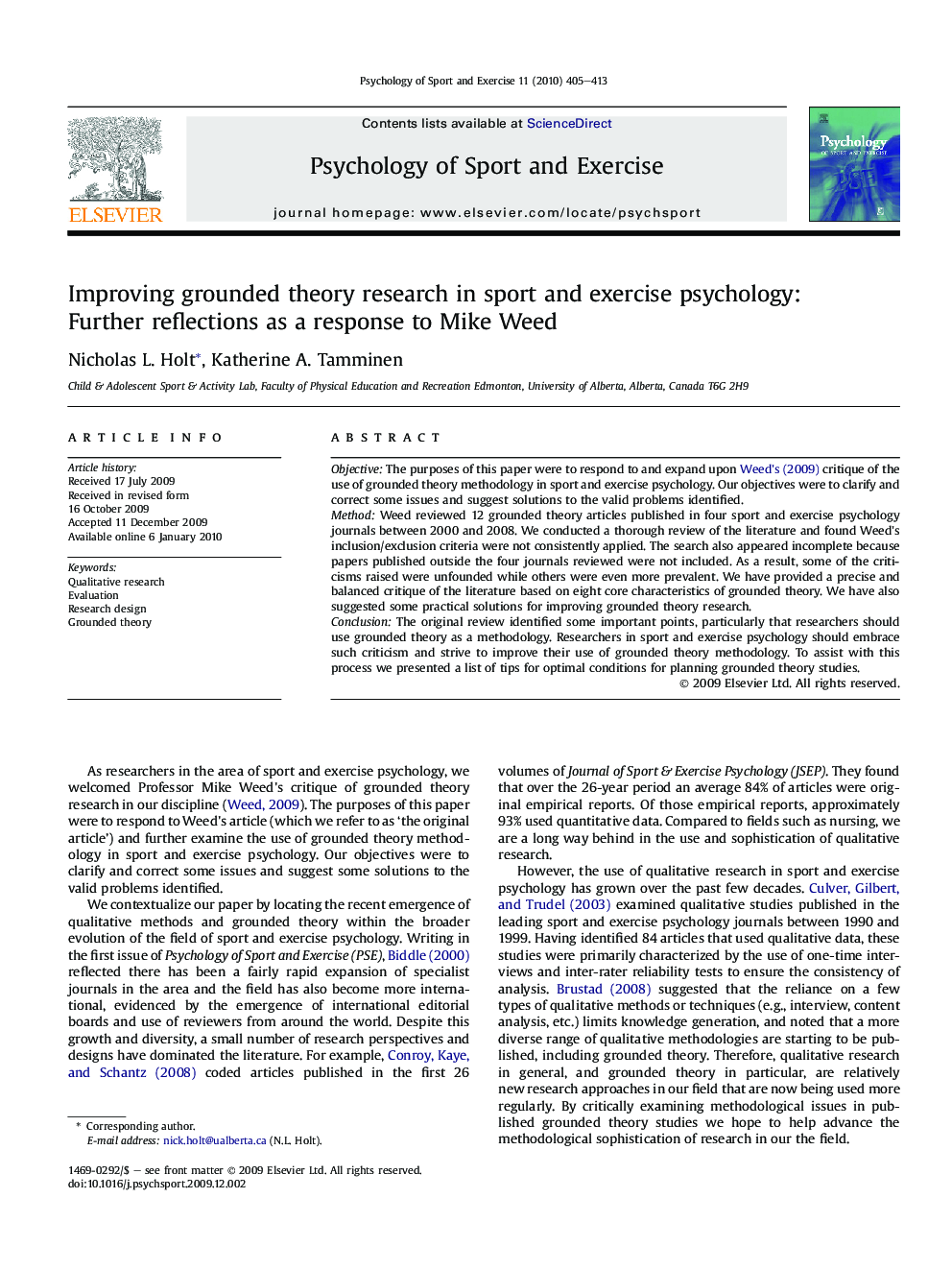| Article ID | Journal | Published Year | Pages | File Type |
|---|---|---|---|---|
| 894535 | Psychology of Sport and Exercise | 2010 | 9 Pages |
ObjectiveThe purposes of this paper were to respond to and expand upon Weed's (2009) critique of the use of grounded theory methodology in sport and exercise psychology. Our objectives were to clarify and correct some issues and suggest solutions to the valid problems identified.MethodWeed reviewed 12 grounded theory articles published in four sport and exercise psychology journals between 2000 and 2008. We conducted a thorough review of the literature and found Weed's inclusion/exclusion criteria were not consistently applied. The search also appeared incomplete because papers published outside the four journals reviewed were not included. As a result, some of the criticisms raised were unfounded while others were even more prevalent. We have provided a precise and balanced critique of the literature based on eight core characteristics of grounded theory. We have also suggested some practical solutions for improving grounded theory research.ConclusionThe original review identified some important points, particularly that researchers should use grounded theory as a methodology. Researchers in sport and exercise psychology should embrace such criticism and strive to improve their use of grounded theory methodology. To assist with this process we presented a list of tips for optimal conditions for planning grounded theory studies.
